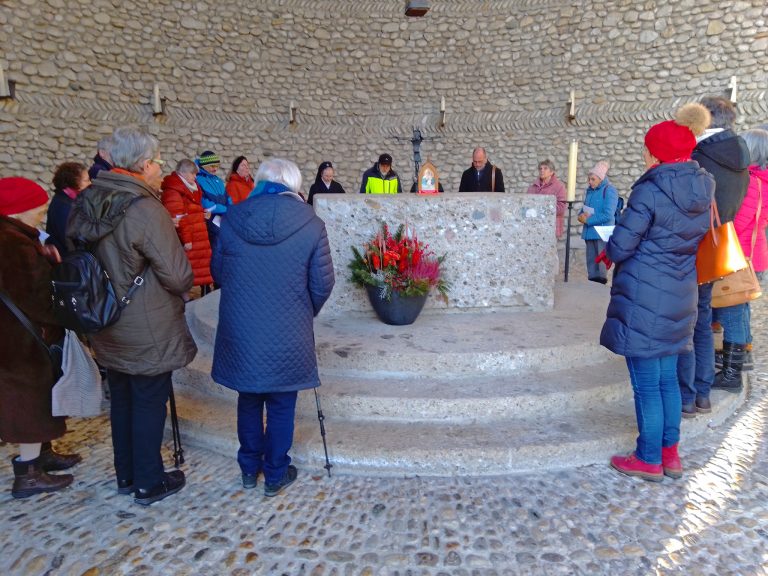The docudrama “Dachau, The Hell” will premiere in Spanish, with English subtitles*, on August 22. In some places, the Schoenstatt Family is already organizing premiere screenings, even in a movie theater, to watch this special production together. The documentary recounts the experiences of Fr. Joseph Kentenich, founder of Schoenstatt, during the years he was imprisoned in the Dachau concentration camp.
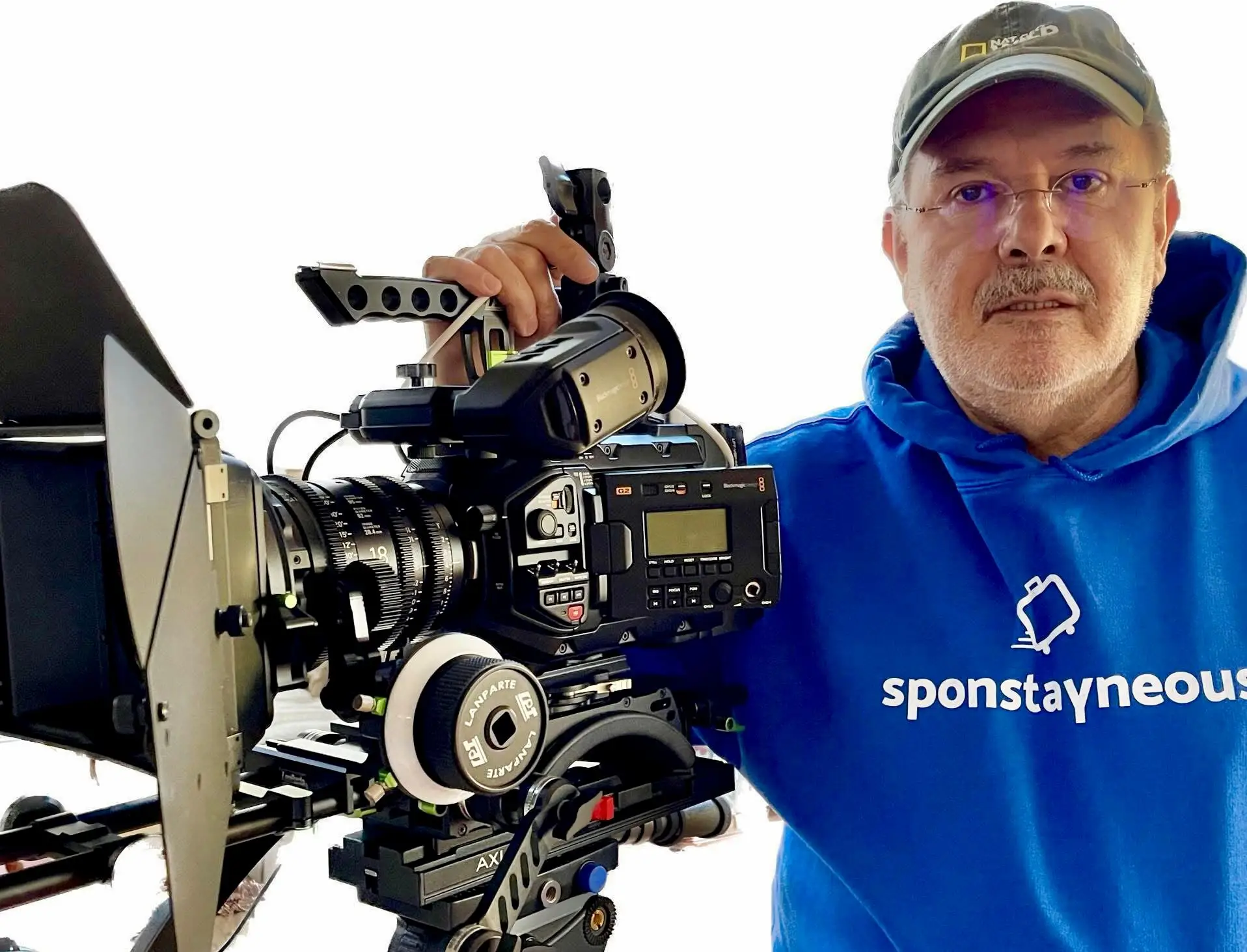
The film was produced by Ecuadorian director Gabriel Gross, who has lived in the United States since 1975. Gabriel began his film career at the Organization of American States, where he worked for more than 40 years, producing documentaries on topics related to education, art, and politics in the 34 member countries. In 2013, he took early retirement to serve the Church, and particularly the Schoenstatt Movement. With the Franciscan Foundation for the Holy Land, he has produced several promotional documentaries on Franciscan work. The Foundation awarded him the “Golden Cross,” instituted by Pope Leo XIII, in recognition of his work. Gabriel is also a visual artist, and his creations have been exhibited in numerous galleries around the world.
In the following interview, he tells us more about the production “Dachau, Hell,” which was created with the help of the postulators who contributed and continue to contribute to the Kentenich Cause and the International Coordination of Schoenstatt.
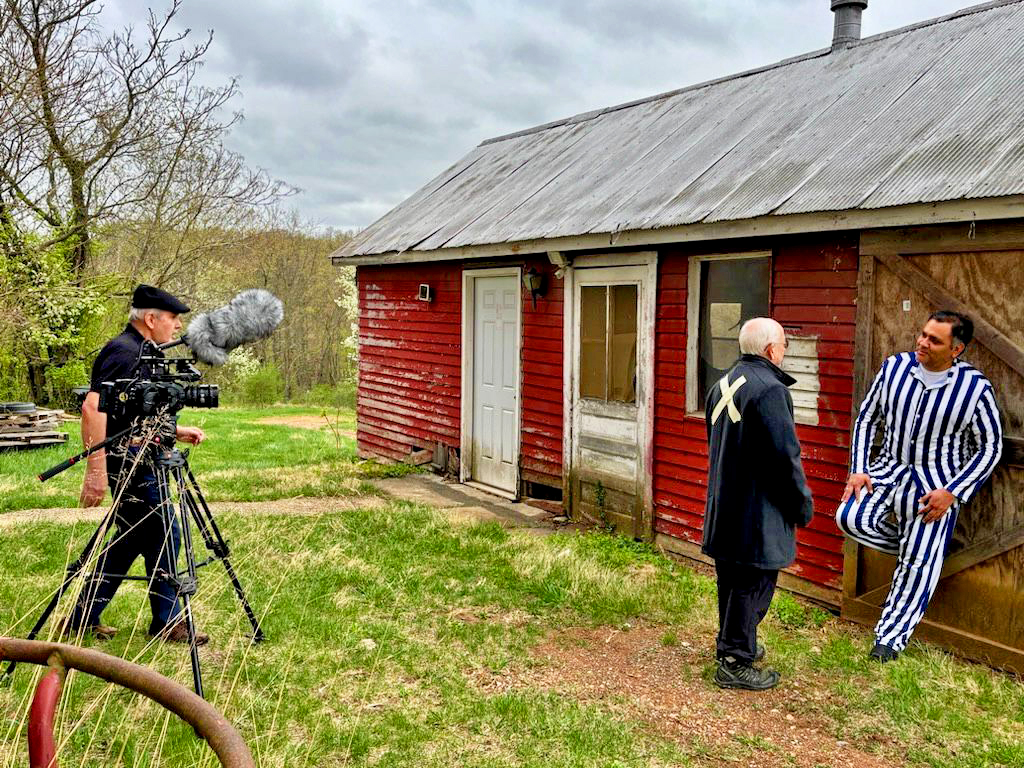
What motivated you to create this documentary about Fr. Kentenich’s life in Dachau?
The Holy Father John Paul II, in an audience with the Schoenstatt family, issued a challenge: “You beatify your founder,” and Pope Francis echoed this.
A group of Schoenstatters from different continents came together to take on this responsibility. We know it will not be easy to achieve. Still, we are convinced that our founder and spiritual guide, through his devotion and love for the Blessed Mother, has inspired many people to follow this path through their Covenant of Love with Mary and their practical faith in Divine Providence.
For all these reasons, I decided, together with a group of volunteers from CINEmater, to produce one of the chapters of Father Kentenich’s life—perhaps the most challenging chapter that a human being could endure, and one that no one would wish to go through, knowing that many prisoners in the concentration camp lost their faith and surrendered to the darkness of Dachau’s hell.
Can you tell us more about the filming: how and when it took place, the team involved, the emotional experience of reliving history…?
After several communications with the Dachau concentration camp authorities, I finally obtained permission to film for three days—it should be noted that filming with professional cameras, in this case movie cameras, is not allowed, and the flow of tourists who arrive daily cannot be interrupted.
In September of last year, 2024, together with my wife Monica, who is my production assistant, we arrived very early in the morning. We presented ourselves at the gate with heavy metal bars and a sign that read “work will set you free” (Arbeit macht frei).
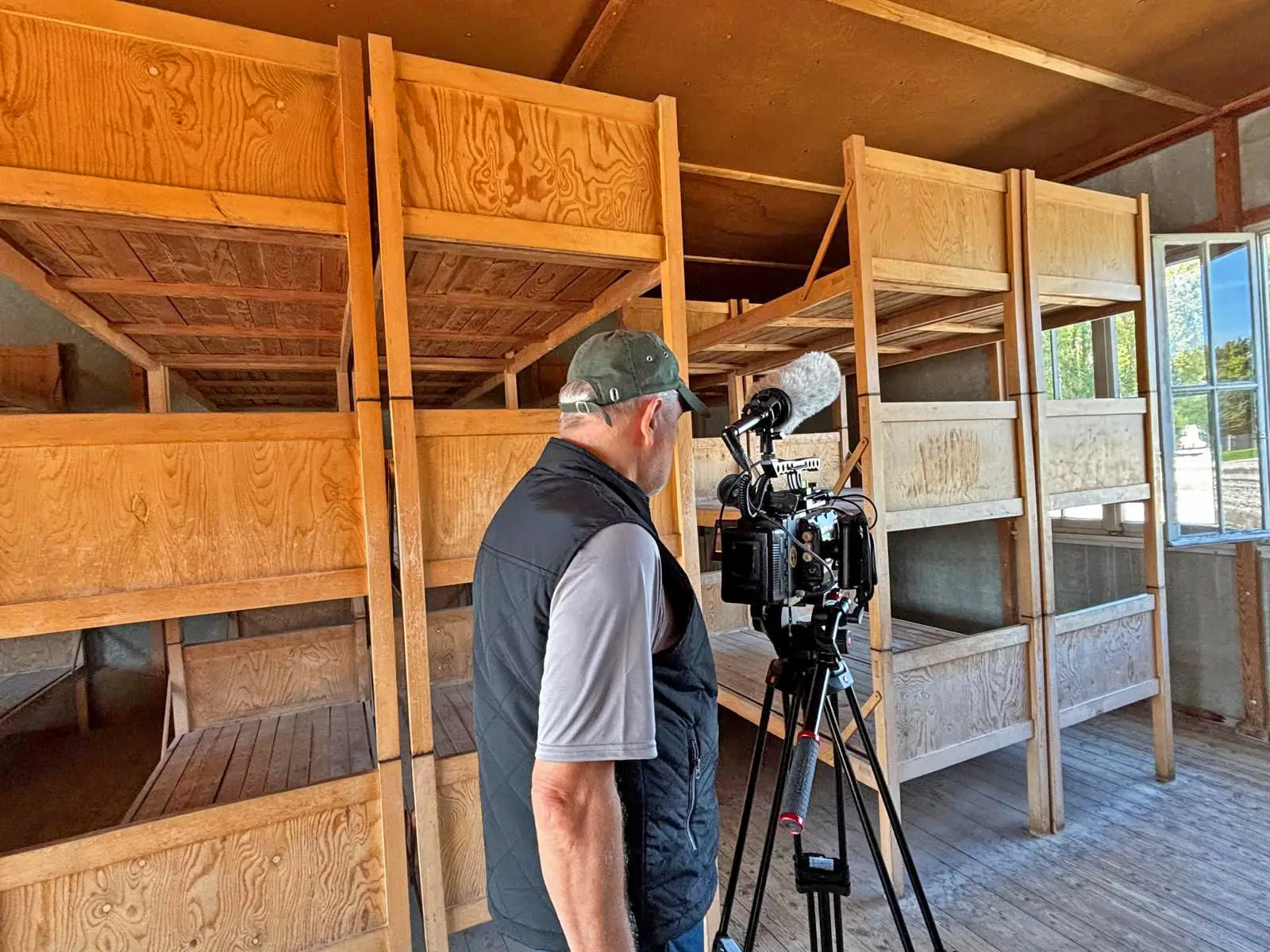
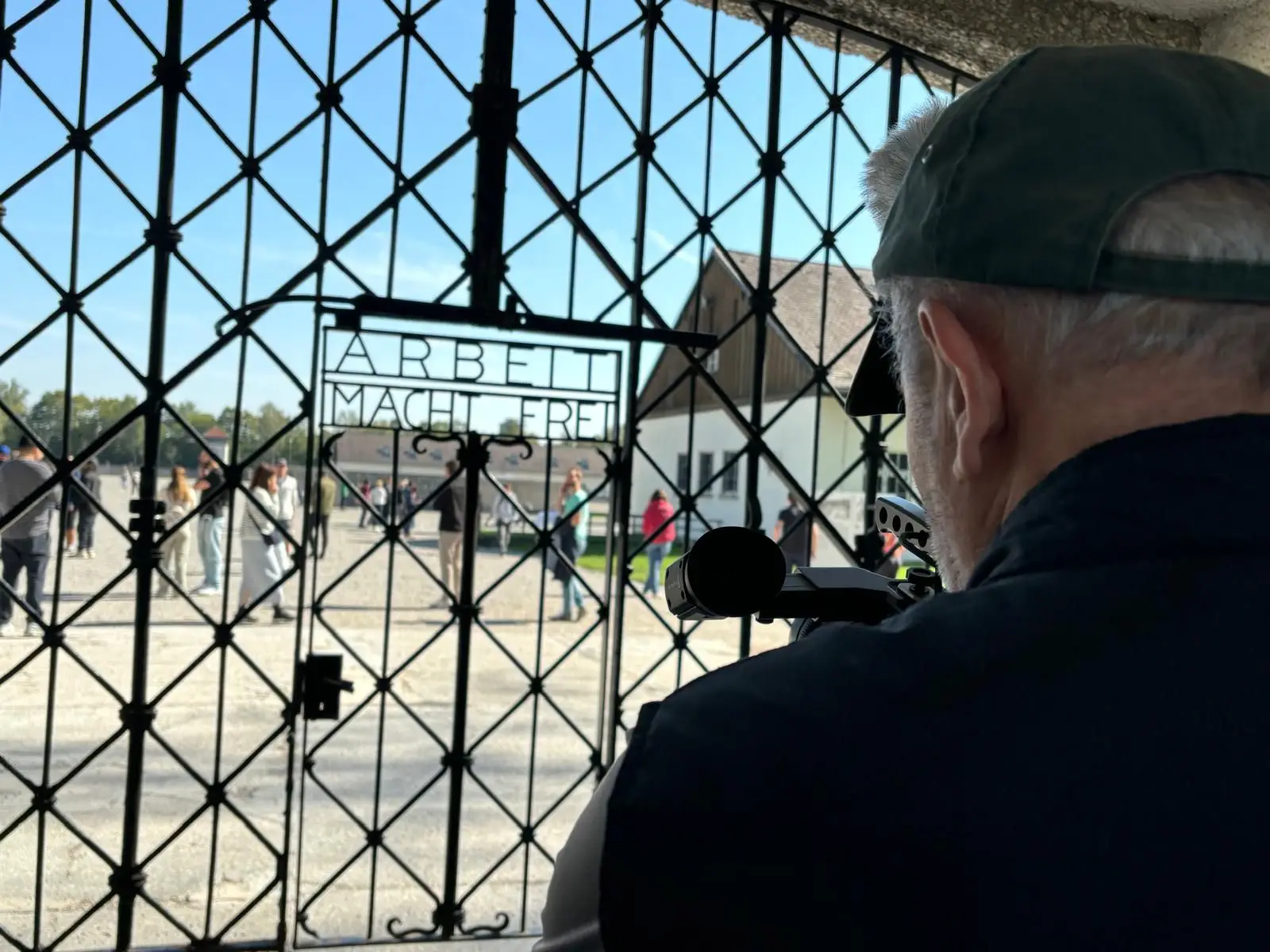
Before the trip, I prepared myself by reading as much as I could about the hell of Dachau. I thought I would find the barracks where Father Kentenich had lived, and others that are mentioned in the literature, but I only found large stones on the floor carved with the number of each barrack.
I had the great challenge of recreating a story with images that no longer exist, as the Nazis had destroyed most of the facilities so that no evidence would remain of the cruelty and brutality that was committed in this place that was supposed to be a “rehabilitation camp.”
Is there a memorable moment you would like to highlight?
We stayed at Marienau, the House of the Federation Priests, and I needed a space where I could set up a studio for interviews. Walking around the house, I found an interior chapel, but I needed to cover the large stained-glass window on one of the giant walls that allowed natural light to enter. Since that wasn’t possible, I decided to light it up and take the risk of having silhouettes in the images… I’m so glad I did! It was in that very chapel that Father Kentenich gave his last retreat before surrendering to the Gestapo in Koblenz.
It was very moving when the Schoenstatt Fathers helped by dressing up in prison uniforms – with stripes – and celebrated Mass on the same altar that was used in the concentration camp, which is now in a chapel on Mount Moriah in Schoenstatt. This altar is a powerful symbol of faith and resistance amid the horror of Dachau.
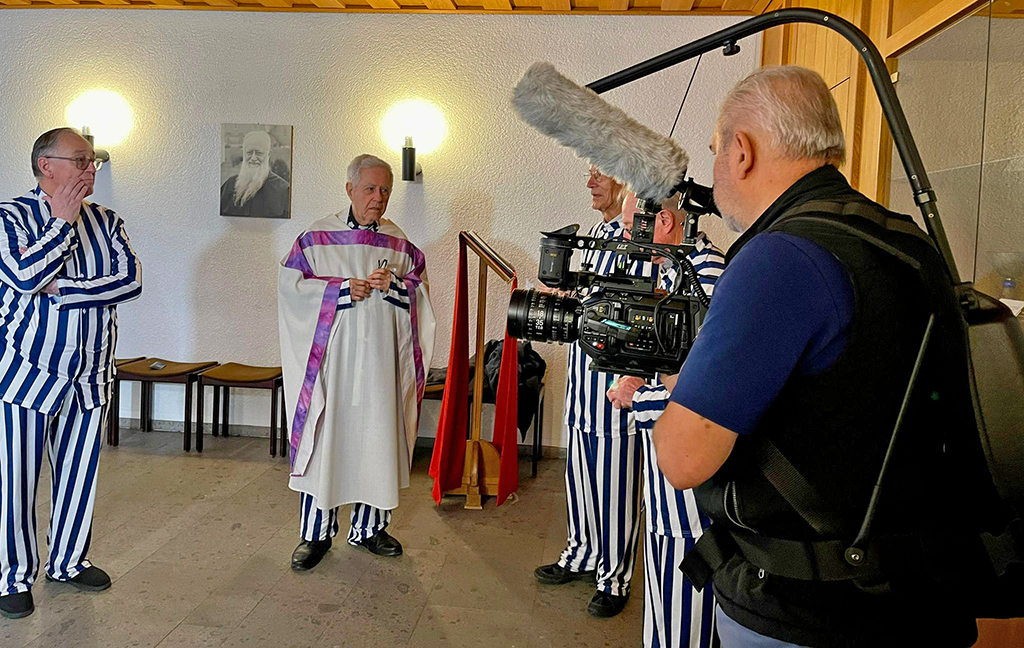
What do you want to convey with this new film?
We live in a world of uncertainty, a selfish world where the most important thing is “being important,” a world in which God is not a priority, is not part of our lives, and we only remember Him when we go through a “Dachau”.
With this story, Father Joseph Kentenich moves us not to lose faith and to hope that this Dachau is not forever, as long as we trust in the Creator and his Mother, the Blessed Virgin Mary, our MTA, who never abandons us, no matter how difficult the circumstances we are facing.
One of the objectives of this project is to support the Kentenich Cause financially. How can countries and individuals do this?
As a Schoenstatt Family, we must be aware that it is also our responsibility to support the Movement in our local areas and the activities of Schoenstatt International. Financial resources are needed; this is everyone’s responsibility, and today we have an excellent opportunity to do so.
Rent a movie theater, find a screening room, an auditorium, your living room, etc., or any space where the Schoenstatt Family and friends can gather to ask for donations and raise the necessary funds.
The members of CINEmater do not receive payment; we are all volunteers, and this is our apostolate.
To request the documentary at no cost, write to the following email address: cinematerproducciones@gmail.com
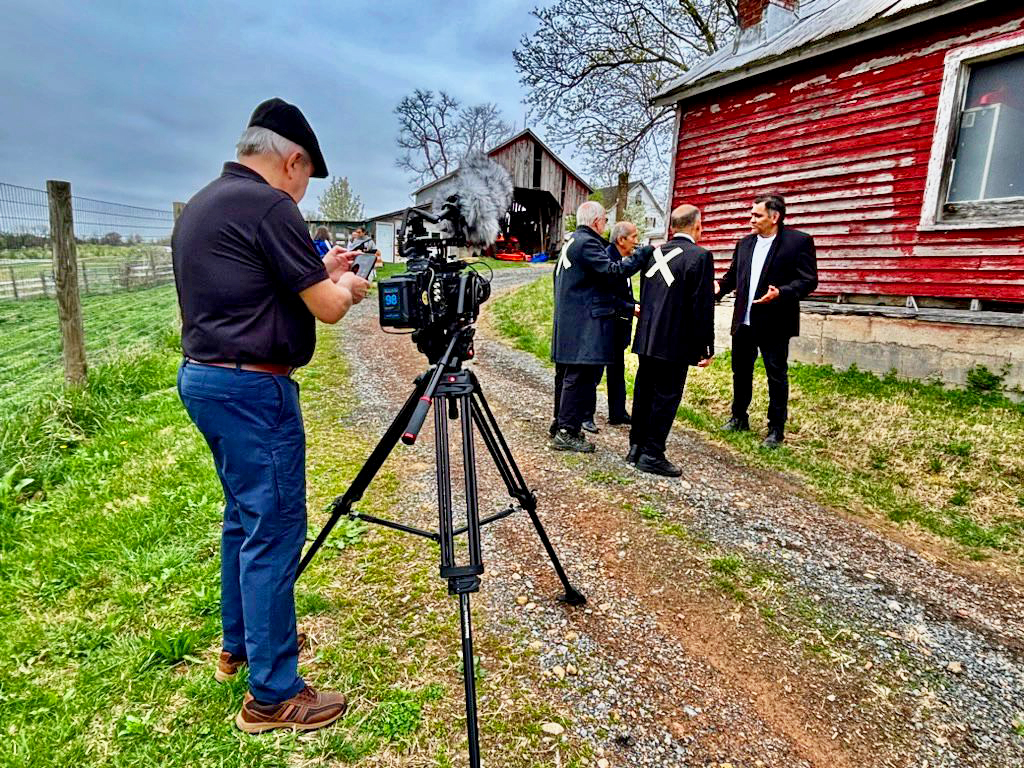
* The film will initially be released in Spanish and English. If there are volunteers to translate it, it can also be translated into other languages. Those interested in collaborating can contact us at this email address: cinematerproducciones@gmail.com
To learn more about this film, click here.
Translation: Maribel Acaron


